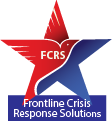Helping Healthcare Workers through Peer Support Training
Peer Support in Healthcare
Peer support training is a crucial aspect of healthcare that often goes overlooked. In a demanding and emotionally charged environment, healthcare workers face immense stress and pressure, leading to burnout and mental health challenges. Hospitals, recognizing the need for a robust support system, are increasingly turning to peer support training to enhance the well-being of their staff.
The nature of healthcare work exposes professionals to a myriad of challenging situations, ranging from critical patient conditions to ethical dilemmas. The emotional toll of these experiences can be overwhelming, and without proper coping mechanisms, healthcare workers may find themselves struggling to maintain their mental and emotional well-being. Peer support training offers a solution by equipping individuals with the skills to provide empathetic assistance to their colleagues.
One of the primary advantages of peer support training is its ability to foster a sense of community within healthcare organizations. By promoting open communication and mutual understanding among colleagues, this training creates a supportive network that encourages healthcare workers to share their concerns and experiences. This sense of camaraderie not only alleviates feelings of isolation but also contributes to a healthier work environment.
Moreover, peer support training is instrumental in reducing the stigma associated with seeking help for mental health issues. Healthcare professionals often fear judgment from their peers or supervisors, hindering them from discussing their struggles openly. Peer support programs break down these barriers by promoting a culture of empathy and understanding. Trained peers can recognize signs of distress and provide non-judgmental support, creating an environment where seeking help is not only accepted but encouraged.
In addition to addressing mental health challenges, peer support training contributes to the overall improvement of patient care. Healthcare workers who receive adequate emotional support are more likely to maintain high levels of job satisfaction and engagement. This, in turn, translates to better patient outcomes, as satisfied and mentally healthy healthcare providers are better equipped to deliver quality care with compassion and efficiency.
Hospitals, recognizing the impact of peer support training on staff well-being and patient care, are increasingly integrating these programs into their organizational structures. The implementation of such training is not only a response to the current mental health crisis among healthcare workers but also a proactive measure to prevent burnout and promote resilience.
Furthermore, peer support training is cost-effective for hospitals. By investing in the well-being of their staff, healthcare organizations can reduce turnover rates and associated recruitment costs. A satisfied and emotionally supported workforce is more likely to stay with an organization, leading to increased stability and continuity in patient care.
The effectiveness of peer support training is evident in numerous success stories from healthcare institutions that have adopted these programs. Improved staff morale, decreased burnout rates, and enhanced teamwork are commonly reported outcomes. As the demand for healthcare services continues to rise, hospitals must prioritize the mental health of their workforce to ensure sustained quality care.
In conclusion, peer support training is a crucial component of the modern healthcare landscape. As healthcare workers face increasing challenges, both professionally and personally, providing them with the tools to support each other is essential. Hospitals that invest in peer support training not only contribute to the well-being of their staff but also enhance the overall quality of patient care. By fostering a culture of empathy, understanding, and support, peer support training is a necessary and impactful initiative for healthcare organizations seeking to navigate the complexities of the healthcare environment.
Upcoming Peer Support Trainings
Saturday, January 27, 2024
Saturday, February 24, 2024
Saturday, March 30, 2024
Saturday, April 27, 2024
Details
Designed to prepare emergency service personnel, healthcare providers, and other advocate agency responders with the ability to not only recognize and learn to manage stress but how to provide a low level of psychological intervention to fellow colleagues who may be at risk. This training teaches first responders to function as the first layer of psychological help and support for their fellow peers. Virtual Classes offer open enrollment Nationwide.

